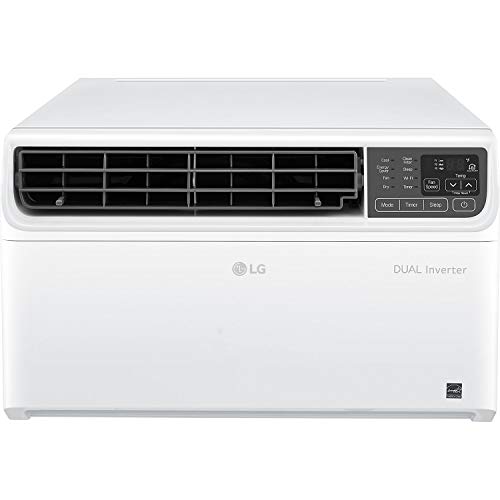If you're here, then it means you are seeking information on air conditioner types. There are many different kinds, and it can be daunting to choose the best one that fits your needs. We have researched this topic thoroughly, so you don't have to.
In this post, we will explain the ins and outs of six different types of air conditioners. These types are:
- Basic Central Air Conditioner - this is the one most people think of when considering an AC.
- Ductless (or Mini-Split Air Conditioner) - used in houses without ductwork.
- Window Units - the most common units used to cool single rooms.
- Portable Units - can be moved around.
- Hybrid Air Conditioner - switches between burning fossil fuels and using electricity.
- Geothermal Heating and Cooling - use a coil in the Earth to either heat or cool your home.
As you can see, there are a lot of options when it comes to air conditioners. Throughout the rest of this post, we will explore how each one works, the pros and cons of each one, and when it is best to use a specific type.
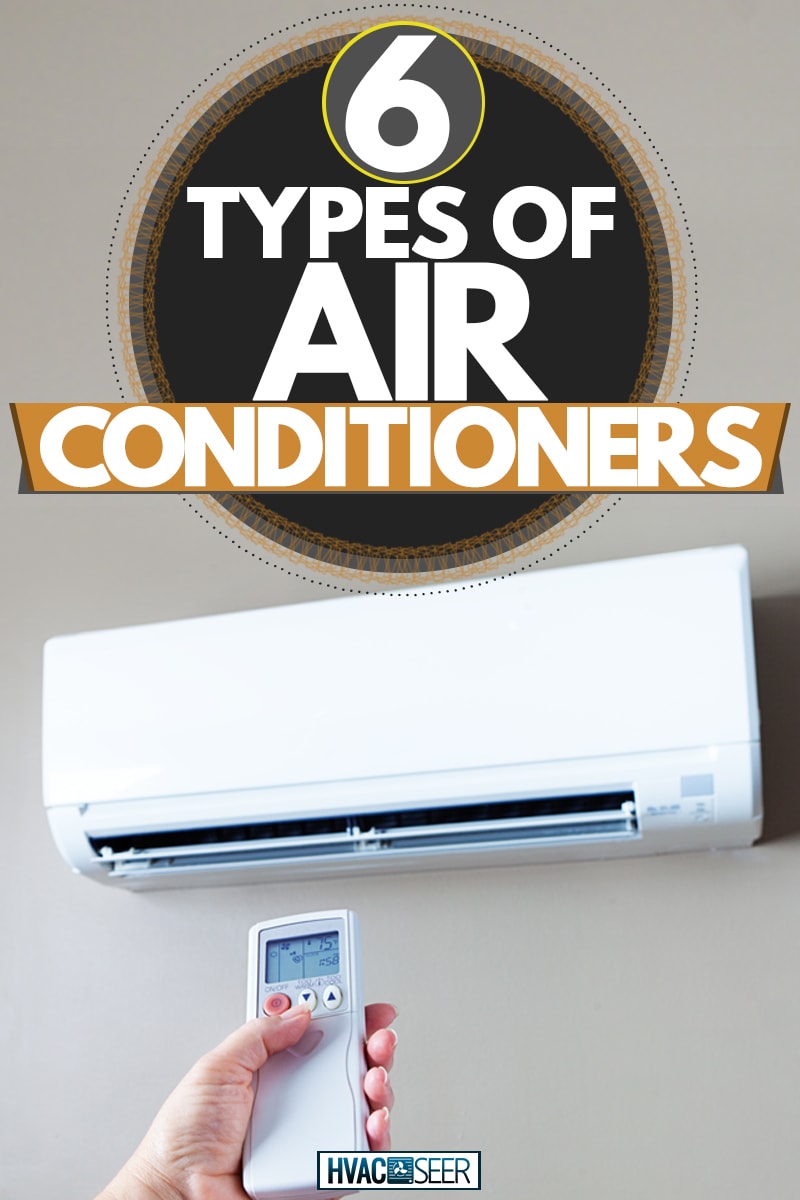
Basic Central Air Conditioner
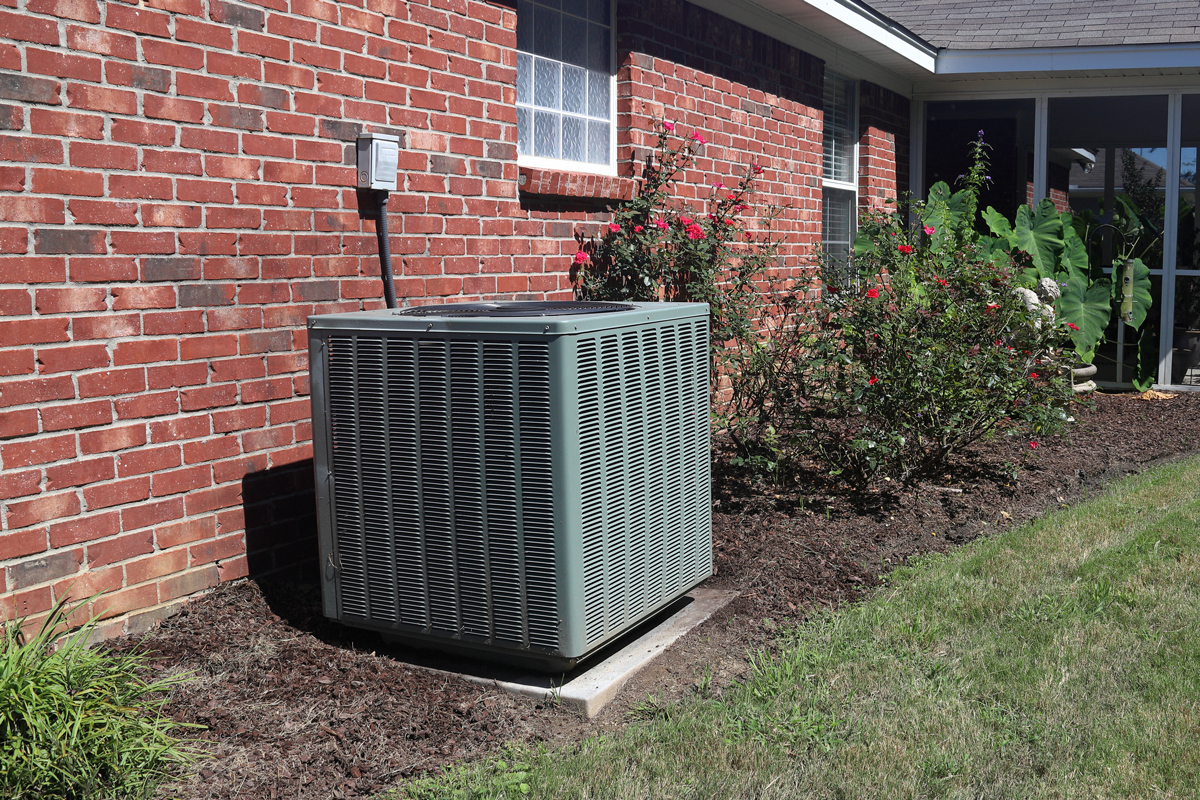
When most people think of air conditioning, they are usually thinking about a central air conditioner. This type of cooling consists of one unit placed on the roof of a house or a concrete slab outside the home. Central air brings in air and circulates it around the home through the supply (vents that put air into the home) and return ducts (ducts that bring air back to your system).
Many homeowners use central air because it is the easiest way to control the climate of a large house. Central air keeps the whole house at a consistent temperature all year, filters your air, and most units can be used for heating and cooling.
Even though this is the most popular air conditioning option, it still has some cons. Since the unit keeps your entire house at a consistent temperature, it uses a lot of electricity, which will cause your energy bills to increase. With central air, you will need to have the ducts professionally cleaned at least once a year to not build up with mold and bacteria.
To have this type of unit installed, you will need to be sure you have ductwork in your house. Ductwork is a system of vents that are used for heating and cooling the home. If you already have some furnace system in place, you probably have ductwork. If not, it can cost $1,800-$3,300 on average to have it installed.
Ductless (or Mini-Split) Air Conditioner
If you do not have ductwork in your home, the ductless air conditioner might be a better option for you versus central air. This type of air conditioner has a separate unit for each room you want to cool and cools each room separately. The system consists of an outdoor unit with a compressor and a condenser attached to each indoor unit with tubing. Every indoor unit is mounted onto a wall with blowers attached.
You might consider a mini-split system if you want to have each room temperature-controlled independently. With a ductless air conditioner, you can save money by only cooling the rooms you routinely occupy. This makes it a better option than central air for people who have substantial homes but only use certain rooms.
One of the great things about ductless systems is that they can be zoned. This means that you can connect thermostats to the areas you use the most, and set the system to cool only those areas, saving a lot of money and energy. These systems are easier to install than central air and are more energy-efficient because they don't use ducts.
Mini Split Air Conditioners may save you money over a period of time, but they can cost up to 30% more than a regular central air conditioner to have installed. If their filters are not cleaned at least once a month, they won't work as efficiently, and it can lower the life of the unit. Another thing that may be considered a con is the appearance of the indoor unit in your room. Some people do not like how it looks once installed in their homes.
Window Units
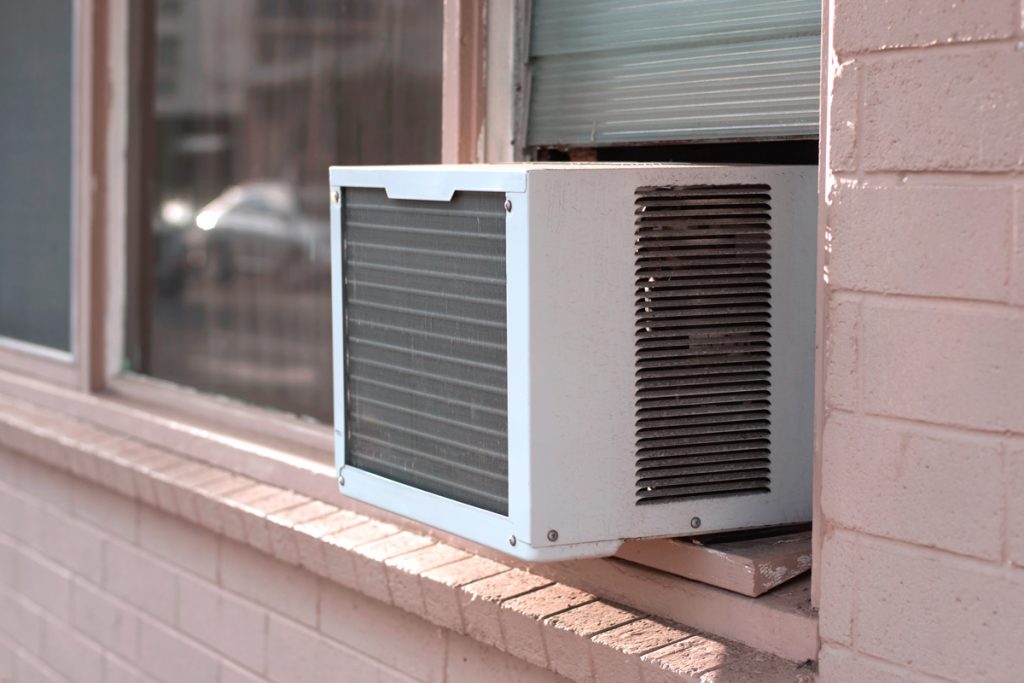
Window units are a self-contained unit that sits in a window sill or slot in the wall. They work best for cooling single rooms. These units usually put out a low level of noise and have a high-efficiency level. These units pull the hot air from your room to the back of the unit and bring in cool air.
One of the biggest things to consider is that as long as the air conditioner is placed in the window, that window is blocked. Water drips from the back of the air conditioner, which means you have to consider placement carefully, so the draining water doesn't end up where you don't want it. Window units come with a panel that may let hot air in from outside, causing the unit to be less effective.
Portable Units
Portable units are similar to window units in that they are self-contained and most effective at cooling one room. However, they are different in that portable units are freestanding, and they use only an outlet and a window to let out the exhaust. Being freestanding makes it easier to move them from room to room.
These units require no installation, so anybody can buy one and use one. They are cheap to buy and aren't limited to use in one room. You can usually find a place to put them, so they won't make your room look less classy.
If you have a larger room, a portable unit will not be able to cool it efficiently. As they are pumping out col air, they release some hot air into the room, making it less effective. Another problem you may run into is that even though these are portable units, some are quite heavy and difficult to move around. Some portable ACs have water tanks that need to be emptied regularly.
Hybrid Air Conditioner
These air conditioners can cool and heat a home. They use an electric pump combined with a gas furnace, sometimes utilizing solar power. Hybrid air conditioners detect temperature changes and adjust accordingly. They switch between burning natural gas and a heat pump, depending on which is the most energy-efficient. During the summer, the system pumps heat out of the home, and during the winter, it pumps it into the home.
The hybrid air conditioner is energy efficient and can make the home very comfortable with little work on the homeowner's part. Like central air, it cools the entire home. Because it is energy efficient, it will lower your utility bills, which is a nice plus.
If you are more interested in long-term savings, this may be a good option for you. However, you are going to pay a lot upfront for installation. It can cost between $6,000 to $12,000 to have one put in, with the average price of installation being $8,500.
Geothermal Heating and Cooling
These systems work by moving temperature conducting fluid through pipes under your home. This fluid gathers heat from the sun and then uses it to pump the heat into your home. To keep the home cool, your heat pump grabs the heat out of your home and transfers it into the fluid under your home. The air is then returned to your home through the house's ductwork.
If you are looking for a good system for the environment, lasts a long time, and helps you save money in the long-term, then this is the system for you! While conventional central air has a lifespan of 12-15 years, a geothermal system lasts over 20-years, with the underground loops lasting up to 50-years! Because the parts aren't exposed to the elements, they require very little maintenance.
The largest disadvantage of a geothermal system is that it costs a lot to have it installed, despite only two parts. You can expect to pay $12,000 to $45,000 for installation, and sometimes even more if you have a particularly large home. However, the investment might be worth it, because it costs significantly less to run over time than standard central air. It is estimated that the system will have paid for itself within 5-10 years.
What Kind of Air Conditioner is Best?
Now that we have discussed the different types of AC systems, you might be wondering which one is the best. To figure that out, you have to ask yourself several questions. A couple of these questions are:
- How big is the space I'm trying to cool?
- Does my house have ductwork?
- Do I care more about upfront costs, or am I willing to spend more to save more in the long run?
How Big Is the Space I'm Trying to Cool?
If you want to cool your entire house at once, it might be best to use central air, a ductless system, a hybrid system, or a geothermal system. However, if you would prefer to cool only a section of your home, but want to cool more than one room, setting up a ductless system and zoning it would be best. But if you are only looking to cool one room or boost the AC in a specific area, then a portable or window unit would be better.
Does My House Have Ductwork?
There are a couple of units that depend on ductwork to spread AC throughout a home. If you have ductwork or are willing to have it installed, you can install any of the systems. However, if you don't have ductwork, a ductless system, such as a mini-split system or a window unit, is better.
Upfront Costs Or Money Saved Long-term?
Some systems, like central air, cost less to have installed, but cost a lot over a period of time. Other systems, such as a hybrid or geothermal system, cost a considerable amount to have installed, but are cheaper to run. You need to figure out if you would prefer to spend more to have it installed or spend more to keep it running. If you have the budget for it, a geothermal system has the longest lifespan of the other ones and will save you a lot of money over the 50-years it's operational.
What is the Most Reliable Air Conditioner Brand?
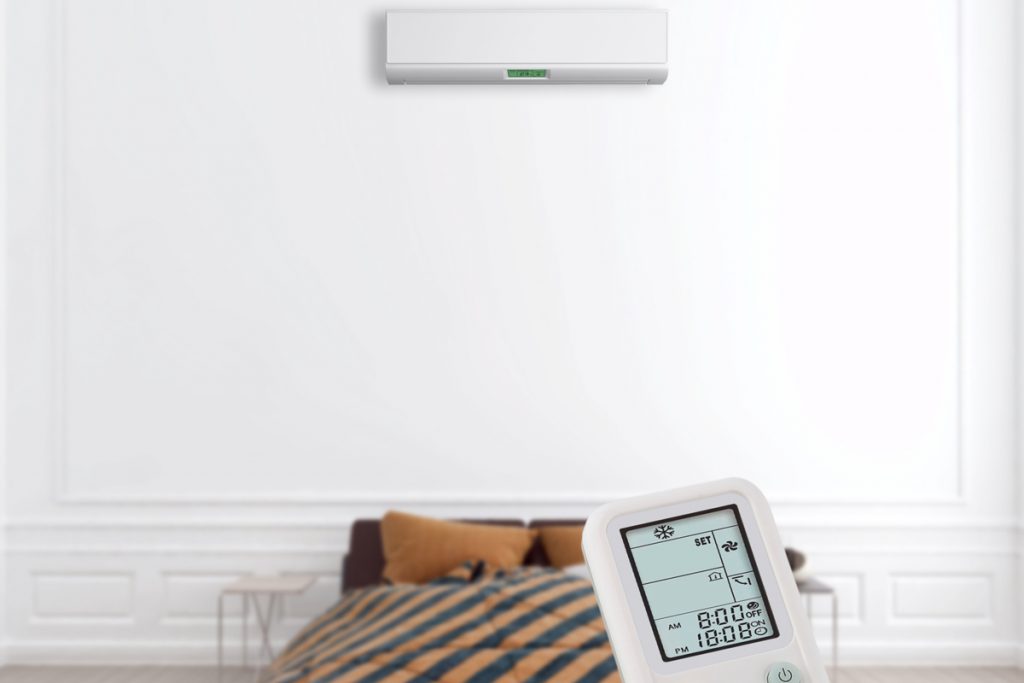
Depending on what type of air conditioner you use, you might want to look for a specific brand.
As of 2019, the Heil brand central air conditioner was deemed the most durable of the ones looked at. It lasts 18-22 years on average. If you are interested in seeing where other brands rank, you can see the list here.
The best brand of mini-split AC depends on if you want a single zone system or a multiple zone system. Single zone is more appropriate for one-bedroom, whereas multiple zone is for homeowners who want to use it throughout the home. For a single zone system, you are going to want Mitsubishi. If properly maintained, it can last up to 20-years. For multiple zones, an LG Multi VS is the most reliable, and it also is expected to run for 20-years.
If you are looking to get a window or portable air conditioner, LG makes very reliable models of both types. For a window air conditioner, you can click here to check out the LG Dual Inverter on Amazon.
If you want a portable one, click here to see the LG LP0817WSR on Amazon.
For a geothermal system, American Standard makes some really reliable systems. You can find information about their different models here.
What is the Best Air Conditioner For A Bedroom?
If you want to cool a bedroom, it is best to use either a ductless AC, window AC, or portable AC. To decide which one works the best for your purposes, you have to determine the bedroom's size, whether you want to move the AC, and for which window to install it. Ductless AC is the best option if you want your room's AC hook-up to other rooms in your house. If you only want to focus on your bedroom, use a window AC if you don't mind having your window blocked, or a portable AC if you want to move it around your room.
What Brand of Air Conditioner is the Quietest?
Mitsubishi Ductless Mini System Air conditioners are the quietest air conditioning systems. They are quieter because the air runs through smaller tubes and doesn't use ductwork, eliminating the sound of air moving through ducts. On average, these machines put out a noise level of 32-decibels, which is just above a whisper (30-decibels).
We've Covered A Lot!
Now that you've read this post, you know everything you need to know about the six different cooling systems, how they work, their advantages and disadvantages, and where each one works best. Now you can decide what kind to install with confidence!
Please check out our related articles about air conditioners:
Should Air Conditioners Be Covered In Winter?
Air Conditioner Outside Unit Freezing Up - What Could Be Wrong?

